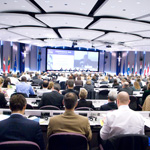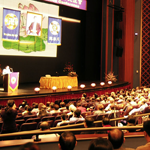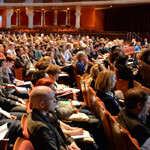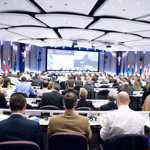While EHRs are sold to physicians as a way to increase quality while making documentation more efficient, few providers have seen as much return on that promise as they could like. Medical scribes boost EHR productivity can be time consuming to use on a daily basis, and patient interaction can suffer when being forced to peer at a computer screen during consult after consult. The solution, according to one cardiology practice, is to let a professional typist do the typing, and allow the physician to use his skills where they do the most good.
“I found that our EHR was slowing me up a lot in the clinic,” explained Dr. Alan J. Bank, of United Heart and Vascular Clinic in St. Paul, Minnesota to EHRintelligence. “It was cumbersome, and I wasn’t enjoying working in the clinic very much, because I was just doing too much paperwork and too much typing, just filling out all these forms and scheduling things, and doing everything on the computer. I just wasn’t enjoying the clinical practice.”
As head of his practice’s research department, Bank decided to take a scientific look at how EHRs were affecting his work, and began a study based on contrasting the usual pattern of care – 20 minutes for a follow-up and 40 minutes for a new patient visit – with the use of shorter consults and the aid of a medical scribe. After creating EHR templates and training the scribe in cardiology, the scribe would create most of the patient note before the visit, allowing Dr. Bank to arm himself with all the necessary information before stepping in the room.
“What we found was that without a medical scribe, it took about 24 minutes to see a follow-up patient including prepping the chart, talking to the patient, typing or dictating the note and completely doing everything for the visit,” Bank explains. “When we had the scribe, it took about 16 minutes. So you’re saving a third of your time. It turns out that when we saw a patient in clinic, the total revenue both direct and indirect was about $2500 for the system per patient, and to use the scribe, it costs $25 per hour. So seeing four patients an hour costs you about $6 per patient for the scribe, and you’re making that $2500 for the system. Plus, physicians are happier, and patients get seen sooner. So it’s pretty much a no-brainer.”
Patient satisfaction remained high after the end of the study, and physicians were able to see more patients per day while leaving the office on time, Bank said. “With the EHR, we had to leave one open 20-minute slot every four hours because the doctors couldn’t keep up. So we were each losing two patients a day. Our doctors who use scribes now don’t have to leave that 20 minute slot open. I’m seeing 27% more patients than my partners without a scribe.”
“Several of my colleagues who are using scribes now tell me it saves them two or three hours a day,” Bank said. “One of them was going to cut back to 80% time because she wasn’t getting home to see her kids, and she decided to stay full time when she started using scribes. Another would go home and eat dinner with his family, then he’d finish his notes for two hours at home. Another was staying until 8 or 9 at night, and was always behind when seeing patients, and that’s all gone away.”
“I think in the future, in five years, everyone should be using either a scribe or some other version of physician helper,” he predicted. “To me, it doesn’t make economic sense to have a doctor who’s getting paid a good salary and has all the training to be sitting there typing or filling out forms. Someone else can do it just as well or better. And a lot of physicians are getting worn out. They’re just getting tired. But if we made things easier for physicians and took some of the paperwork away, it would be better for everybody. As doctors, we want to take care of patients. We don’t want to be typists.” Source

































